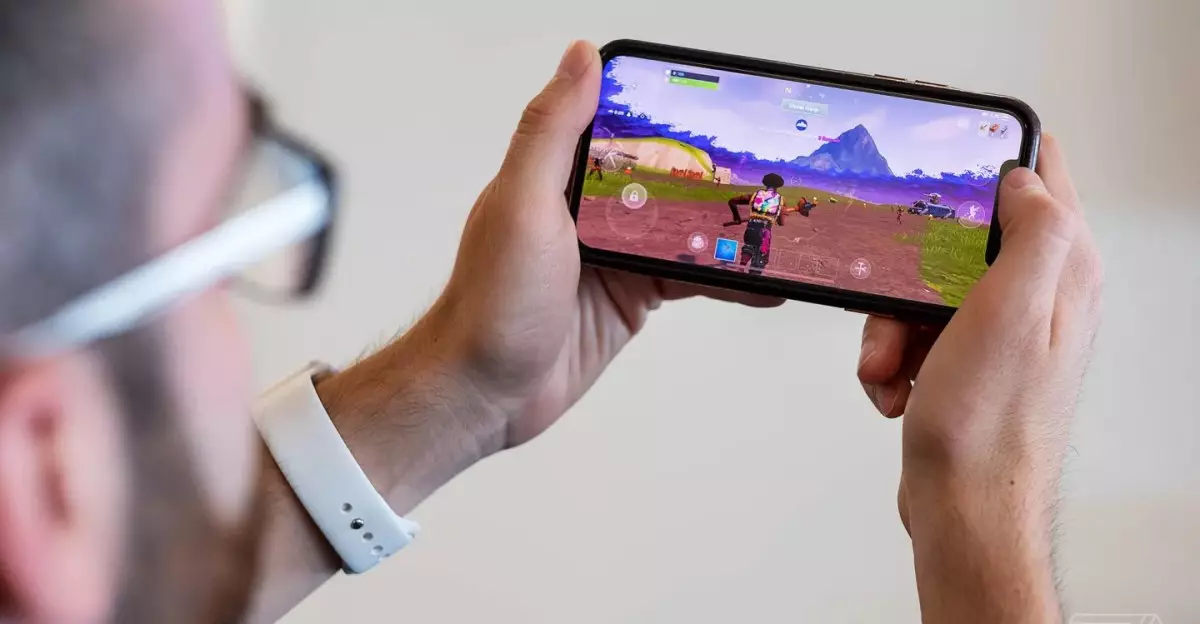After a prolonged absence that stretched nearly five years, Fortnite has triumphantly returned to the iOS App Store, much to the delight of its passionate fanbase. This momentous event follows a significant legal showdown between Epic Games and Apple that reshaped the digital landscape of app distribution. The return was officially announced by Epic Games and is evidence of the game’s unyielding popularity, as well as the evolving dynamics in the gaming and app industry.
For many, this return is not just about playing the game, but a symbol of victory in the struggle for more equitable app marketplace practices. Epic Games, led by its staunch CEO Tim Sweeney, has pioneered this change for not only Fortnite but for the entire industry by challenging Apple’s tight grip over the App Store’s rules regarding in-app purchases. The implications of this development extend beyond mere gaming; they resonate throughout the digital marketplace.
The Catalyst Behind the Return
Fortnite’s exit from the App Store was precipitated by Epic’s bold attempt to circumvent Apple’s in-app payment system by introducing its own payment option within the game. This move directly violated Apple’s guidelines, prompting a swift response that saw Fortnite removed from the platform. Over the years that followed, the battle in the courts was not just about Fortnite but about the fundamental principles of marketplace fairness and competition.
A crucial turning point in Epic’s quest for reinstatement occurred during the Epic Games v. Apple court case. The court ruled in favor of Epic by determining that Apple could not enforce its payment processing monopoly when it comes to transactions processed outside of applications. This ruling has equipped Epic with a significant bargaining chip, allowing them to negotiate terms more favorable to developers and consumers alike. The ongoing dialogues hint at a new era where digital platforms might adopt less restrictive policies, a possibility that excites many in the tech and gaming sectors.
Negotiating for a Bigger Picture
Sweeney’s “peace proposal” illustrates Epic’s desire not only to return Fortnite to the App Store but also to usher in an era of change concerning app distribution norms. His diplomatic offer indicates a willingness to resolve ongoing litigation if Apple adopts a more favorable policy internationally. It’s a strategic move that could potentially lay the groundwork for reciprocity within the mobile app ecosystem.
What’s particularly fascinating about this situation is the potential ripple effect on other developers. If Apple expands this “friction-free, Apple-tax-free” structure, it could dramatically alter the financial dynamics of app development, offering more room for innovation and less for monopolistic practices. Currently, developers often grapple with the infamous “Apple tax,” a 30% cut of their revenues that they must yield to the App Store. Sweeney’s advocacy may just hold the potential to shift the industry’s power balance.
The Power of Cross-Platform Engagement
As Fortnite reenters the iOS marketplace, Epic has launched promotional incentives to entice players to use its alternative payment system. The promise of 20% back in Epic Rewards for gamers that utilize Epic’s payment options across various platforms, including PC and mobile, is a clever strategy to forge greater loyalty among players while simultaneously attempting to undermine Apple’s traditional payment structures.
This strategy signifies a broader trend in the gaming world – the need for developers to create more engaging and rewarding environments for players to thrive. By incentivizing direct spending through its ecosystem, Epic is not only reinstating Fortnite on mobile but also establishing a sound framework for a more player-centric approach. Players are not just consumers; they are pivotal parts of this ecosystem, and rewarding them strengthens the bond between developers and users.
Looking Ahead: An Industry Transformed
The resurrection of Fortnite on iOS marks just the beginning of a new chapter for Epic Games. With a landmark victory against one of the biggest tech giants, the direction taken by this case could inspire other developers to challenge conventions and advocate for better policies. This moment serves not merely as a return but as an invitation for opportunities, exploring new avenues for engagement across platforms, and appealing to a more connected gaming community.
In a world where digital interaction is more crucial than ever, the ramifications of this event extend beyond just gaming. It encourages a collective push toward a more equitable marketplace for all developers. The fight for a fairer landscape is not just Epic’s story—it’s a narrative that every developer and gamer can now engage with and support, championing progress in a digital age that promises to be increasingly democratic and inclusive.

